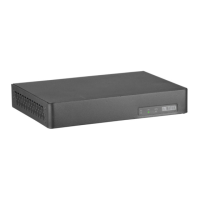Matrix PRASAR UCS System Manual 1231
CHAPTER 10
System Maintenance
Certificate Management
What's this?
PRASAR UCS supports certification for TLS and Web Server. In case, the Clients (Standard SIP phones) require
this certificate, you can download the same and install it in them.
PRASAR UCS supports the following types of Certificates.
1. Root CA Certificate
2. Self-Signed System Certificate
3. CA-Signed System Certificate
Certificate Authority (CA) is a trusted (third-party) organization which creates and sells TLS Certificates to
websites or organizations. CAs issue a TLS Certificate to the organizations/websites after verifying their
credentials.
Generally, one TLS Certificate is issued for a particular server/website domain and it is valid for a limited period of
time.
PRASAR UCS supports upto 5 (1 Default Root CA + 1 default Self-Signed +3 newly generated Self-Signed or CA-
Signed) Certificates in the system.
The Default Root Certificate and Default System Certificate cannot be deleted from the system.
Now, let us understand the purpose of each type of certificate.
Root CA Certificate
The Root CA Certificate is an in-built Certificate Authority which signs the System Certificates created by our own
server or by other servers. The Root CA Certificate is also used by the clients to validate the Server Certificate that
is received during TLS negotiation.
By default, a Root CA Certificate is already provided in the system. You may also regenerate a Root CA Certificate
to bind the Certificate with the details of your organization. Refer “Regenerate Root CA” to know more.

